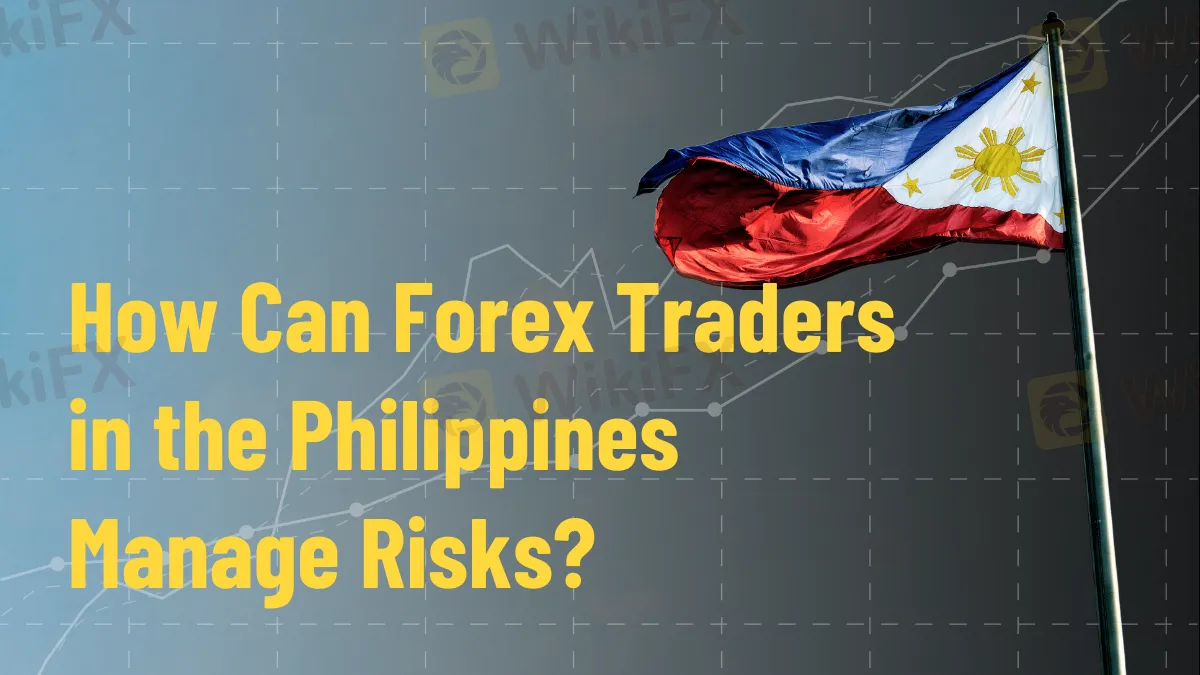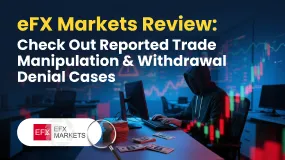Abstract:Looking to manage Forex trading risks in the Philippines? Visit WikiFX's educational page for tips on market volatility, leverage, and more to protect your investments.

Forex trading, also known as foreign exchange trading, is becoming increasingly popular in the Philippines as more individuals look for possibilities in global financial markets. However, like any other kind of investment, Forex trading has dangers that must be handled correctly in order to prevent substantial losses. Understanding these dangers and applying risk mitigation methods are critical for Filipino traders' long-term success. This article looks at how Forex traders in the Philippines may efficiently manage risks and make intelligent trading choices.
Common Risks in Philippine Forex Trading
Traders should be aware of numerous sorts of hazards associated with forex trading:
- Market Volatility: The Forex market is notorious for its tremendous volatility. Currency prices shift dramatically in reaction to economic events, political developments, and market emotion. This volatility may result in big profits as well as severe losses if transactions are not properly handled.
- Leverage Risk: Leverage enables traders to hold a greater stake in the market with a small quantity of money. While this may boost earnings, it also raises the risk of loss. Many Filipino traders are drawn to significant leverage, but doing so without knowing the dangers may lead to terrible consequences.
- Counterparty Risk: In Forex trading, the counterparty is the entity you deal with. You may lose money if your broker or financial institution fails to meet their responsibilities. This danger is especially significant in uncontrolled markets or when dealing with unscrupulous brokers.
- Geopolitical Risks: Elections, trade disputes, and wars may all have a big influence on currency markets. Filipino merchants must remain current on global events to avoid being caught off guard by rapid market swings.
Protecting Yourself from Significant Losses
One of the most crucial components of Forex trading is safeguarding your money from significant losses. Filipino traders might employ the following strategies:
- Stop-Loss Order: A stop-loss order is an instrument that terminates a transaction when the market hits a certain price level. This helps minimize possible losses by ensuring you do not lose more money than you are ready to risk on a single deal. Stop-loss orders are an essential risk management tool for Filipino traders.
- Diversification: Diversifying your transactions over several currency pairings may help mitigate the effect of negative swings in any particular currency. By diversifying your assets, you reduce the danger of being too exposed to the performance of a single currency.
- Managing Leverage: While leverage might help you trade more effectively, you must use it with caution. Filipino traders should avoid employing too much leverage and make sure they understand how it impacts both prospective earnings and losses. Effective leverage control is an essential component of risk management in Forex trading.
- Education and Experience: Filipino traders should learn about the Forex market before engaging in live trading. Using a demo account allows you to practice trading methods without risking any real money. This enables you to build experience and confidence before investing your funds.
Related news:
Leverage and Forex Trading Risks
In Forex trading, leverage has two sides. It enables traders to manage enormous positions with very little amounts of cash, so magnifying both potential gains and loss. Filipino traders must utilize leverage properly and understand its repercussions.
The key to efficiently managing leverage is to prevent overleveraging. A leverage ratio of 50:1 indicates that a 2% market movement against your position might wipe out your whole investment. As a result, it is critical to utilize leverage ratios that are compatible with your risk tolerance and trading plan.
Setting stop-loss orders may also assist in reducing leverage risks by automatically closing transactions if the market swings negatively. Filipino traders should also examine their leverage utilization on a regular basis to ensure that it stays below acceptable bounds.
Regulations for Forex Trading in the Philippines
The Bangko Sentral ng Pilipinas (BSP) and the Securities and Exchange Commission (SEC) are the two primary regulatory agencies in the Philippines for forex trading. These regulatory bodies provide guidelines and standards to safeguard traders and guarantee that Forex brokers behave honestly and openly.

The BSP monitors foreign exchange transactions and guarantees that Forex brokers follow monetary rules. Meanwhile, the SEC oversees broker operations to avoid fraud. Filipino traders should only deal with licensed brokers that follow BSP and SEC rules since this adds an extra layer of protection and decreases counterparty risk.
The Importance of Stop-Loss Orders
A stop-loss order is a vital instrument for risk management in Forex trading. By using a stop-loss order, Filipino traders may automatically abandon a deal when the market hits a specific price, reducing possible losses.
For example, if you start a trade anticipating the value of a currency to climb, but the market swings against you, the stop-loss order will end the deal whenever the price hits the level you specify. This keeps you from losing more than you can afford while also protecting your trading cash. Without a stop-loss order, you risk hanging onto losing trades for too long, resulting in catastrophic losses.
Fundamental Analysis and Risk Management
Fundamental analysis is essential for controlling risks in Forex trading. By examining economic factors such as interest rates, job statistics, and inflation, Filipino traders may make better-informed judgments about which currencies to trade and when to join or depart the market.
For example, if a country's central bank is predicted to boost interest rates, the currency may gain, allowing traders to benefit. Poor economic performance, on the other side, may cause a currency to fall in value. Filipino traders can lessen the danger of unexpected market changes and increase their chances of making good deals by keeping up to date on global economic trends.
The Benefits of Using a Demo Account
Filipino traders should practice using a trial account before trading real money in the Forex market. A demo account enables you to trade with virtual money in a risk-free environment where you may test your techniques and get acquainted with market dynamics.
Using a trial account allows traders to discover how various elements, including as leverage, stop-loss orders, and market volatility, influence their trades. It also enables traders to experiment with different trading techniques without the risk of losing money. Once you are confident in your skills, you may go on to live trading with a greater awareness of the hazards.
Managing Emotional Risks in Forex Trading
Emotions may have a considerable impact on Forex trading, leading to poor decision-making and higher risk. Filipino traders should use emotional risk-management tactics such as defining clear trading objectives and trading with discipline.
Related news:
Avoid making hasty judgments motivated by fear or greed. Instead, adhere to your trading strategy and risk management measures, even when the market is turbulent. By being calm, Filipino traders may lower their emotional risks and make more logical trading choices.
Risk-Reward Ratios and Risk Management
A risk-reward ratio is an essential concept in Forex trading that helps traders determine if a deal is worthwhile. For example, a risk-reward ratio of 1:3 suggests that you expect to benefit three dollars for every $1 you risk. This guarantees that your potential returns are proportionate to the risks committed.
Filipino traders should strive for favorable risk-reward ratios in their transactions in order to maximize gains while minimizing losses. By continuously applying risk-reward ratios, you may make more educated and calculated judgments, which will improve your overall trading success.
Conclusion
Forex trading in the Philippines has the potential for profit but also carries substantial dangers. Filipino traders must know the typical hazards and develop techniques to protect themselves from loss. By using methods like stop-loss orders, leverage management, diversifying transactions, and remaining educated via fundamental research, Filipino traders may efficiently control risks and boost their chances of success in the Forex market.
Ready to trade Forex in the Philippines? Visit WikiFX’s educational page for expert tips on managing risks and protecting your investments. Start trading smarter today!













